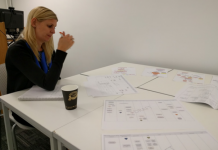When the University of Bath introduced its new research information system in 2012, the aim was to ease the burden on academics and to make it easier to reuse data. Katy McKen explains how research managers teamed up with HR to create a system that they discovered had many possibilities.
When we implemented Pure as a current research information system at the University of Bath, amongst the overarching project aims was a very ambitious target; if a piece of information was added to Pure then the academic wouldn’t be asked for it again by anyone at the university.
We’re not quite there yet but a joint project between Research & Innovation Services and HR to integrate data from Pure into three HR processes helped us take a major step in that direction.
In discussions with HR it became apparent that there was a significant overlap between data in Pure and the information about research requested in academic probation reports, cases for promotion and annual appraisal forms.
Perfect timing
Our timing turned out to be perfect as our approach to HR coincided with a review of the academic promotion criteria and processes. We worked with colleagues in HR and academic departments to specify how the data would be presented so that the report would be seen as an improvement on the current form.
The data we hold in Pure mapped well onto the data that was already requested – research applications and awards, current research projects, research publications, post-graduate supervision and esteem type activities – but we also realised that this was a great opportunity to have data on impact included as part of these processes. Given the increasing importance placed on measuring impact by funders and government, having impact as an integral part of the report was a major step forward.
In terms of functionality the key criteria were that:
- the academic could run the report for themselves with minimal effort; essential to ensure a sense of ownership of the data and to encourage the updating of data in Pure on a regular basis
- the individual could specify timeframes to fit the process for which the report was required
- the report could be slotted into the existing forms for the three processes
We talked to system providers Elsevier about the best way to achieve this and they suggested developing a bespoke report; in collaboration with HR, we worked up a detailed specification, which was signed off by the academic staff committee (ASC), which reviews most probation and promotion cases. Elsevier have subsequently developed a similar report which is now a feature of Pure.
Elsevier delivered the report on schedule and we piloted it with a cohort of first year probationary lecturers. The feedback from the probationers and the members of ASC was very positive; the lecturers found the report easy to run and ASC found the standard format and the knowledge that the data was largely sourced from central systems made the reports faster to review.
There were a few minor layout issues which we fed back to Elsevier and we received an updated version which we rolled out across all probationers and promotion cases (excluding professorial promotion).
Annual appraisals
Then came the real test; annual appraisals. From summer 2015, the Pure Research Activity Report has been a mandatory part of the appraisal form for academic staff. As each of the faculties have run their appraisal processes we have seen an increase in the number of support queries raised and an increase in the volume of data added to Pure.
The queries took two main forms: firstly about details of adding esteem activity and impact data; and secondly checking on data provided from central systems which staff were, in many cases, engaging with for the first time. But virtually none were about how the report functioned.
Overall we’re delighted with the outcomes of the project, but we’re not resting on our laurels and are looking for the next opportunity to re-use the data in Pure, including Centre for Doctoral Training reporting, research facilities use…








